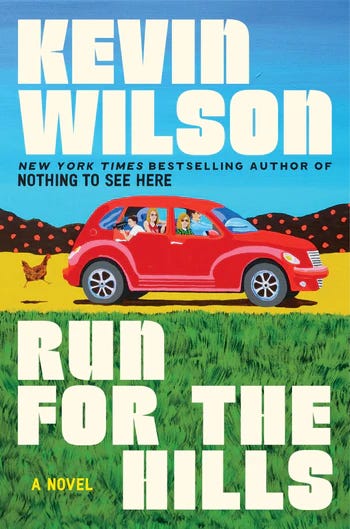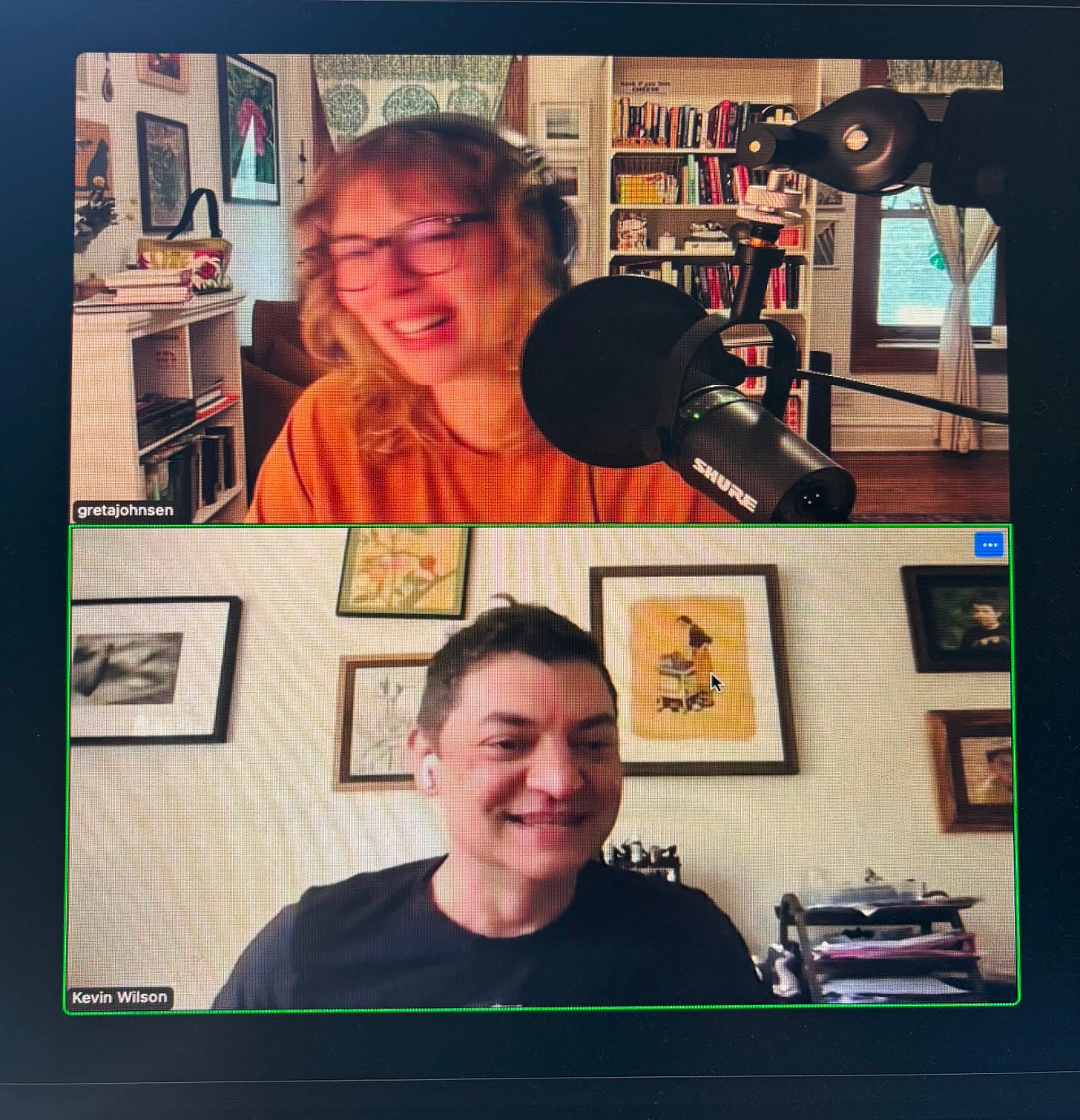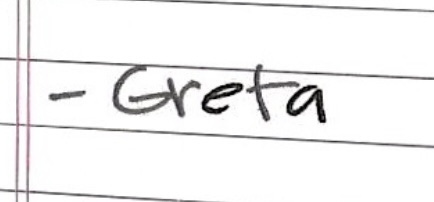Listen: An interview with Kevin Wilson!
Helloooooo!!! For two summers in high school, I worked at a Gold Rush-themed historical park in Fairbanks, Alaska. (Whatever you're picturing right now, make it 75% shabbier and less cool, and that's what it was.)
There were a number of little "cabins" set up as shops in "Gold Rush Town," and back when I worked there, someone offered folks the opportunity to experience 40 degrees below zero. Essentially, this brilliant human was charging absolute suckers $10 a pop to stand in a giant walk-in freezer set to -40 degrees. I used to make so much fun of the people who'd pay to be that cold. But after many, many days of temps in the upper 90s here in Chicago, if someone told me I could pay to stand around in subzero temps, I'd do it in a heartbeat!!!!!!
ANYWAY, today I’m super excited to share some audio with you! I recently had the great pleasure of interviewing one of my favorite authors, Kevin Wilson, not once but TWICE (because I forgot to hit record the first time, because I AM AN AUDIO PROFESSIONAL)! You can listen to the full audio below. I’ve also transcribed (and lightly edited) my favorite parts of the interview.
First, a quick plot synopsis of Kevin’s latest book, Run for the Hills! It’s mostly told from the point of view of Madeline, also known as Mad, a farmer in Tennessee whose life is completely upended when an apparent stranger shows up in a PT Cruiser.
Turns out the stranger is Rube, short for Ruben, and he’s her half-brother. Their dad abandoned them both more than a decade apart, and Mad learns they have two other half-siblings who were also left behind. When Rube invites Mad to join him in said PT Cruiser to find the other siblings and, ultimately, the father who abandoned them all, she can’t say no. And that’s how the adventure begins.
Listen: Kevin Wilson on creating fictional parameters and creating a home you can always come back to
Greta: This is the farthest afield from Tennessee you've gone in your books, right?
Kevin: Oh yeah, for sure.
How did that feel?
Not great, at first! In so many of my books, what I'm trying to do is keep my characters in one place. Like, I don't really want them to go anywhere, because I don't want to go anywhere. Maybe even like in my fictional imaginings, I'm afraid to leave something solid.
So I'm always trying to keep my characters, if not in the house forever, in the same town. If I can keep the setting fixed and tight and compressed, it will create all this tension and combustion, you know?
So I was worried about, well, what happens when you go to Oklahoma and to Utah and to California? How can you keep that tension?
The gift of the PT Cruiser was: We may be moving and traveling West, but every time a new person's getting into that weird car, I'm getting the tension in that car. Now I can get what I need, and I can feel comfortable. Once I knew that I could hold them in that vehicle, I could go anywhere, and I wasn't afraid.
All the siblings are so weird and wonderful. I love Mad a lot, partly because she says she wants to be a farm witch, which I just think is a really delightful phrase. Rube is also really delightful. He's really neurotic and generous. Pep is a college basketball player. She eats all the time, and she calls everybody else out on their bullshit in a very charming way.
And then we have Tom, who wears giant t-shirts and has a really gravelly voice. Did you end up with a favorite, or is that just a completely unfair question?
No, I mean, it's weird because these characters are all just really like versions of myself that I'm just chopping up.
I think the character I most relate to is Mad. Part of it is because her whole identity is wrapped up in this rural town where she grew up and still lives. But she is also trying very hard to hold onto her emotions so she doesn't spill over into mania. And those are things I think the other characters aren't as worried about.
Rube is expansive and manic and excitable. Pep is controlled, but she also is confident because she's good at something really public. And then Tom, like you said, is like a little nymph, like a fairy, like an elf. He's just not of this world.
So Mad was always my anchor. That was the character I could process this weirdness through.
I don't think this is too spoilery, but there comes a point at the end of the book where the quest is accomplished, and the characters are starting to split off. And there's a really beautiful moment for Mad: “This was the way a family worked, she reminded herself. It came together and broke apart over and over again, all the amorphous ways it accommodated expansion and contraction.” I love that line so much.
Oh, thank you. That line that you've read, I think that's my ethos as a writer. Pretty much the subject of every book I write is domesticity. How do you build a home that holds the people that you love?
And then, you know, the next part of that is, how do you build a home that can allow people to leave it so it can constrict to allow that, but then open back up if someone needs to come back or a new person arrives? And I don't mean a domestic space like a home, I just mean like a world that you have made that will allow this kind of flexibility.
That's what every book I write is about. I think when I was younger, the idea of family seemed so much more fixed and final. You would leave your parents, make a life, and then that was your life. The older I get, the more I realize how wildly flexible and changeable your life will become.
So as long as you can still hold a space that is elastic enough to not be completely gutted if someone leaves or when someone shows up, it's the way to survive.
I have kids that are getting older, and I wanted in some ways to write a book that says, “You have to leave. You have to figure stuff out. But also, I want you to know that there's a roadmap to get back to the place where you started if you ever need it.”
I want to talk about your book titles! Because I love them. I think they're so charming. Run for the Hills, Now Is Not the Time to Panic, Nothing to See Here. I love that they all have sort of a vernacular flavor to them. They’re complete sentences. How do they come to be?
I've worked with Ecco [the publisher] my whole career. Every time I turn in a book, they're like, “This is great. We like this book. But the title will change because that title is very bad.”
TSo the title for Nothing to See Here was Children on Fire, . Aand they were like, “We can't have a book that has ‘children’ and ‘fire.’”
And I said, “What about Children Made of Fire?”
And they were like, “It doesn't matter what comes in between the words ‘children’ and ‘fire.’”
But Nothing to See Here worked!
Well, Kevin, thank you so much. Thank you for writing such a wonderful book, and thank you for talking to me about it twice! It was just as fun the second time, don't you think?
I think a third time would be fun!
Ok, that’s it for this week! Thanks for reading (and listening!!!!!), and I’ll talk to you next Friday!
P.S. Do you like this email?! Spread the delight and forward it to a friend! (Or spam an enemy, lol!)




YAY - an interview by Greta to end the week - a true delight!
❤️ the interview, just finished the Hill’s Quest earlier today. Kevin Wilson is a favorite.